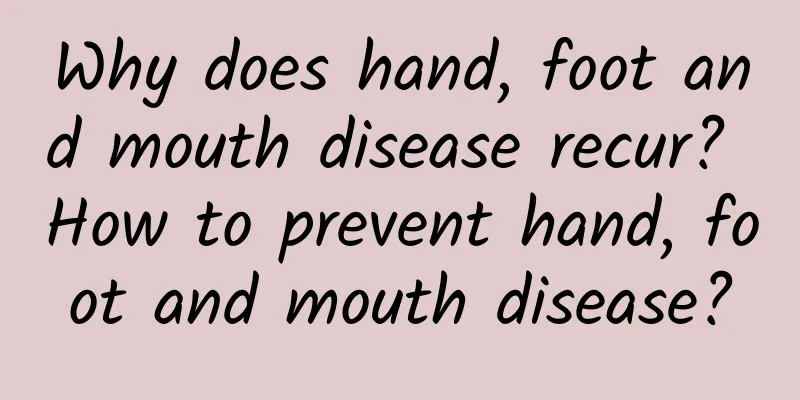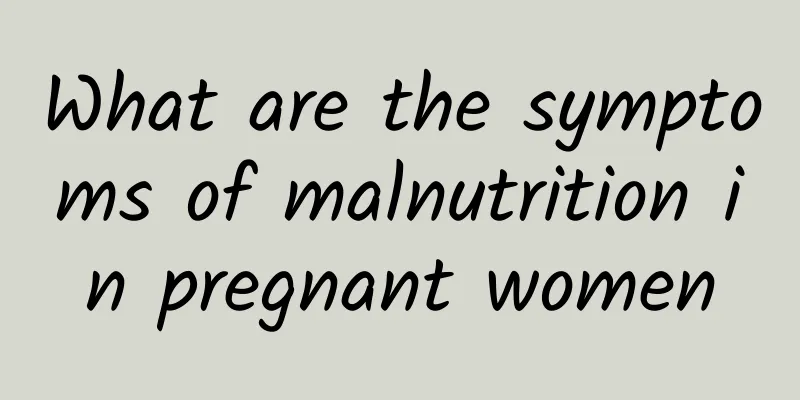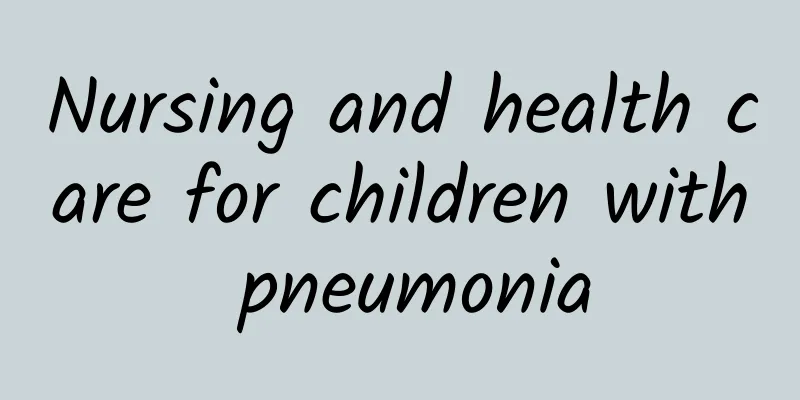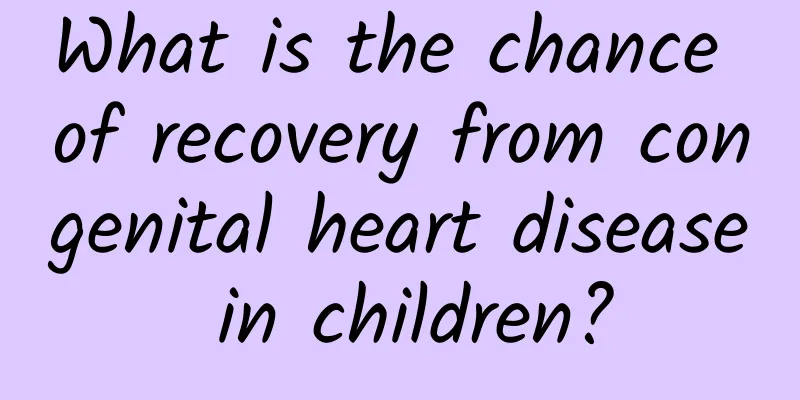Why does hand, foot and mouth disease recur? How to prevent hand, foot and mouth disease?

|
Hand, foot and mouth disease is a disease with a very high incidence in recent years, and the high-risk population is mainly concentrated in children. With the arrival of autumn, many children are prone to various diseases due to poor immunity, which can cause hand, foot and mouth disease. Hand, foot and mouth disease is contagious, and there are more than 20 types of viruses that cause the disease, and the recurrence rate is relatively high. So what are the reasons for the recurrence of hand, foot and mouth disease? 1. Reasons for the recurrence of hand, foot and mouth disease Hand, foot and mouth disease is caused by enterovirus, and there are more than 20 types of enterovirus that cause hand, foot and mouth disease. So even if you have had hand, foot and mouth disease once, you may still get hand, foot and mouth disease caused by another virus infection. 2. Immune to infection with the same virus Hand, foot and mouth disease is caused by a viral infection. After the baby recovers from the disease, the body will acquire corresponding viral antibodies. If the baby is exposed to the same virus again next time, the body will have a certain immunity and will not be so easy to get sick again. 3. Poor resistance to different viral infections There are many viruses that can cause hand, foot and mouth disease. There are no common antigens among them, so the antibodies produced after stimulating the body do not have cross-immunity. If you are attacked by other viruses again after recovering from the illness, you will easily get hand, foot and mouth disease again. 4. How to prevent recurrence of hand, foot and mouth disease Hand, foot and mouth disease is currently mainly transmitted through contact, and there is no targeted vaccine to prevent it. Therefore, developing good personal hygiene habits and dietary hygiene habits is the key to preventing hand, foot and mouth disease. Wash your hands frequently, open windows for ventilation, and disinfect items that come into contact with children on a daily basis, such as tableware, bottles, and toys, regularly. Try to avoid going to public places during the epidemic. 5. Tips Children are not immune to hand, foot and mouth disease for life. Patients who have had hand, foot and mouth disease before may still suffer from it twice or even three times in a row. Even after the disease has passed, there is still a possibility of infection. Parents should not take it lightly. 6. Preventive measures 1. Wash your hands before meals and after defecation. This is the most basic daily hygiene requirement. Wash your hands after going out. Do not just rinse with water. Use soap or hand sanitizer to achieve the effect of sterilization. Do not let children drink unboiled water or eat raw or cold food. Avoid contact with sick children to prevent infection. 2. Parents should also wash their hands with soap or hand sanitizer when they come into contact with children or help them change diapers or deal with feces. Feces and other waste should be handled properly and not thrown away at will. 3. Items used by infants and young children, such as pacifiers and bottles, must be strictly cleaned and disinfected before and after use to prevent the attachment of germs. 4. During the epidemic period of hand, foot and mouth disease, do not take children to places with dense populations and poor air circulation, because these places are easy to gather germs. In addition, you should maintain good indoor hygiene, keep the home environment clean, pay attention to indoor ventilation, and wash and dry clothes and quilts frequently. 5. Children’s toys, personal tableware and cleaning tools should be cleaned and disinfected every day to avoid the breeding of germs. 6. When children show suspected symptoms of hand, foot and mouth disease, they should be taken to the hospital for diagnosis and treatment immediately, and they should not be allowed to contact other people for the time being. Their clothes and used items should be disinfected. If the symptoms are mild, they do not need to be hospitalized, and it is more appropriate for them to be treated and rest at home. |
<<: Baby vomits after hand, foot and mouth disease injection
Recommend
What are the external medicines for malnutrition?
Malnutrition is a big blow to a family. Many peop...
How to treat cough caused by allergic rhinitis in children
When children have allergic rhinitis and cough, t...
What is malnutrition? What are the symptoms of malnutrition?
Malnutrition can cause patients to have difficult...
Can sinusitis cause coughing in children?
Sinusitis in children does cause coughing, mainly...
Is pneumonia fatal in children?
Neonatal pneumonia is a common disease in the neo...
What to do if your three-month-old baby coughs
Infants and young children are inherently fragile...
Can children's cold antipyretic syrup and children's paracetamol and chlorpheniramine be taken together?
It is not recommended to take cold and fever syru...
What to do if children have pneumonia and sputum
What should I do if my child has phlegm due to pn...
Causes of infant hernia, 5 causes of infant hernia
Infant hernia is a common condition in life, and ...
What fruits should children eat for acute laryngitis
The child had acute laryngitis in children. After...
Can potatoes and eggs be eaten together? What are the taboos of eating potatoes?
Potatoes and eggs are rich in nutritional value. ...
What foods are good for children with diarrhea
During diarrhea in children, you can choose elect...
What medicine should I take for neonatal jaundice?
What medicine should be taken for neonatal jaundi...
How to treat jaundice in children
How to treat jaundice in children? The treatment ...
Acute suppurative parotitis is not serious
Acute suppurative parotitis is not serious 1. The...









